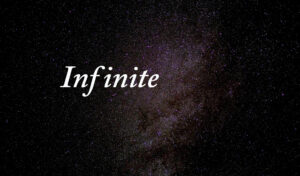Hinduism is a vast and many-sided seeking for Truth. This would be the closest in terms of definition. Of course we can say, and rightly so that Hinduism is the philosophy and way of life inspired by Sanatana Dharma. But that would mean a clarity about what Sanatana Dharma itself is given its wideness and the number of ways different Acharyas define it. Here is something from Sri Aurobindo connecting Sanatana Dharma and Hinduism from his famous Uttarpara Speech which is all-comprehensive.
‘We speak often of the Hindu religion, of the Sanatana Dharma, but few of us really know what that religion is. Other religions are preponderatingly religions of faith and profession, but the Sanatana Dharma is life itself; it is a thing that has not so much to be believed as lived. This is the dharma that for the salvation of humanity was cherished in the seclusion of this peninsula from of old. It is to give this religion that India is rising. She does not rise as other countries do, for self or when she is strong, to trample on the weak. She is rising to shed the eternal light entrusted to her over the world. India has always existed for humanity and not for herself and it is for humanity and not for herself that she must be great.
Therefore this was the next thing He pointed out to me,—He made me realise the central truth of the Hindu religion. He turned the hearts of my jailers to me and they spoke to the Englishman in charge of the jail, “He is suffering in his confinement; let him at least walk outside his cell for half an hour in the morning and in the evening.” So it was arranged, and it was while I was walking that His strength again entered into me. I looked at the jail that secluded me from men and it was no longer by its high walls that I was imprisoned; no, it was Vasudeva who surrounded me. I walked under the branches of the tree in front of my cell, but it was not the tree, I knew it was Vasudeva, it was Srikrishna whom I saw standing there and holding over me His shade. I looked at the bars of my cell, the very grating that did duty for a door and again I saw Vasudeva. It was Narayana who was guarding and standing sentry over me. Or I lay on the coarse blankets that were given me for a couch and felt the arms of Srikrishna around me, the arms of my Friend and Lover. This was the first use of the deeper vision He gave me. I looked at the prisoners in the jail, the thieves, the murderers, the swindlers, and as I looked at them I saw Vasudeva, it was Narayana whom I found in these darkened souls and misused bodies. Amongst these thieves and dacoits there were many who put me to shame by their sympathy, their kindness, the humanity triumphant over such adverse circumstances. One I saw among them especially who seemed to me a saint, a peasant of my nation who did not know how to read and write, an alleged dacoit sentenced to ten years’ rigorous imprisonment, one of those whom we look down upon in our Pharisaical pride of class as chhotalok. Once more He spoke to me and said, “Behold the people among whom I have sent you to do a little of my work. This is the nature of the nation I am raising up and the reason why I raise them.”…..
The second message came and it said, “Something has been shown to you in this year of seclusion, something about which you had your doubts and it is the truth of the Hindu religion. It is this religion that I am raising up before the world, it is this that I have perfected and developed through the rishis, saints and avatars, and now it is going forth to do my work among the nations. I am raising up this nation to send forth my word. This is the Sanatana Dharma, this is the eternal religion which you did not really know before, but which I have now revealed to you. The agnostic and the sceptic in you have been answered, for I have given you proofs within and without you, physical and subjective, which have satisfied you. When you go forth, speak to your nation always this word that it is for the Sanatana Dharma that they arise, it is for the world and not for themselves that they arise. I am giving them freedom for the service of the world. When therefore it is said that India shall rise, it is the Sanatana Dharma that shall rise. When it is said that India shall be great, it is the Sanatana Dharma that shall be great. When it is said that India shall expand and extend herself, it is the Sanatana Dharma that shall expand and extend itself over the world. It is for the dharma and by the dharma that India exists. To magnify the religion means to magnify the country. I have shown you that I am everywhere and in all men and in all things, that I am in this movement and I am not only working in those who are striving for the country but I am working also in those who oppose them and stand in their path. I am working in everybody and whatever men may think or do they can do nothing but help on my purpose. They also are doing my work; they are not my enemies but my instruments. In all your actions you are moving forward without knowing which way you move. You mean to do one thing and you do another. You aim at a result and your efforts subserve one that is different or contrary. It is Shakti that has gone forth and entered into the people. Since long ago I have been preparing this uprising and now the time has come and it is I who will lead it to its fulfilment.”…..
This then is what I have to say to you. The name of your society is “Society for the Protection of Religion”. Well, the protection of the religion, the protection and upraising before the world of the Hindu religion, that is the work before us. But what is the Hindu religion? What is this religion which we call Sanatana, eternal? It is the Hindu religion only because the Hindu nation has kept it, because in this peninsula it grew up in the seclusion of the sea and the Himalayas, because in this sacred and ancient land it was given as a charge to the Aryan race to preserve through the ages. But it is not circumscribed by the confines of a single country, it does not belong peculiarly and for ever to a bounded part of the world. That which we call the Hindu religion is really the eternal religion, because it is the universal religion which embraces all others. If a religion is not universal, it cannot be eternal. A narrow religion, a sectarian religion, an exclusive religion can live only for a limited time and a limited purpose. This is the one religion that can triumph over materialism by including and anticipating the discoveries of science and the speculations of philosophy. It is the one religion which impresses on mankind the closeness of God to us and embraces in its compass all the possible means by which man can approach God. It is the one religion which insists every moment on the truth which all religions acknowledge, that He is in all men and all things and that in Him we move and have our being. It is the one religion which enables us not only to understand and believe this truth but to realise it with every part of our being. It is the one religion which shows the world what the world is, that it is the lila of Vasudeva. It is the one religion which shows us how we can best play our part in that lila, its subtlest laws and its noblest rules. It is the one religion which does not separate life in any smallest detail from religion, which knows what immortality is and has utterly removed from us the reality of death.
This is the word that has been put into my mouth to speak to you today. What I intended to speak has been put away from me, and beyond what is given to me I have nothing to say. It is only the word that is put into me that I can speak to you. That word is now finished. I spoke once before with this force in me and I said then that this movement is not a political movement and that nationalism is not politics but a religion, a creed, a faith. I say it again today, but I put it in another way. I say no longer that nationalism is a creed, a religion, a faith; I say that it is the Sanatana Dharma which for us is nationalism. This Hindu nation was born with the Sanatana Dharma, with it it moves and with it it grows. When the Sanatana Dharma declines, then the nation declines, and if the Sanatana Dharma were capable of perishing, with the Sanatana Dharma it would perish. The Sanatana Dharma, that is nationalism.’
Affectionately,
Alok Da



